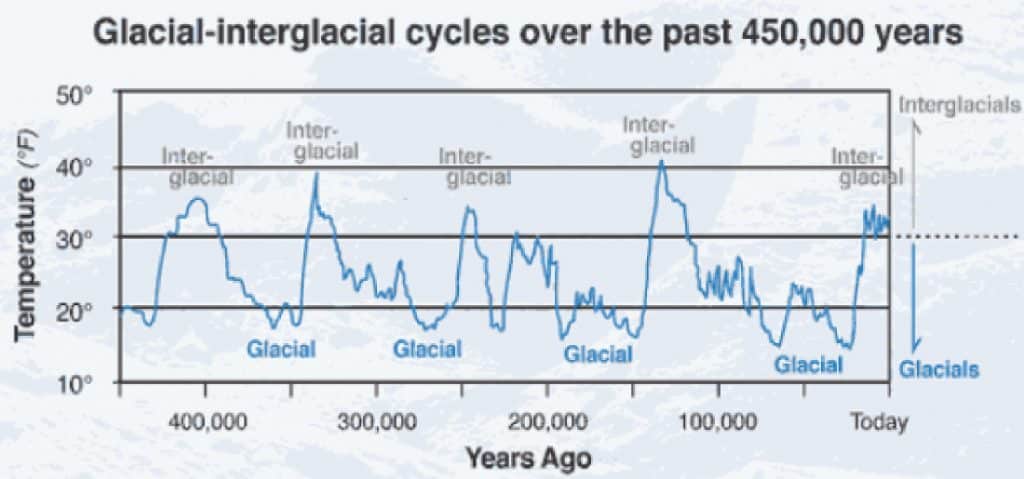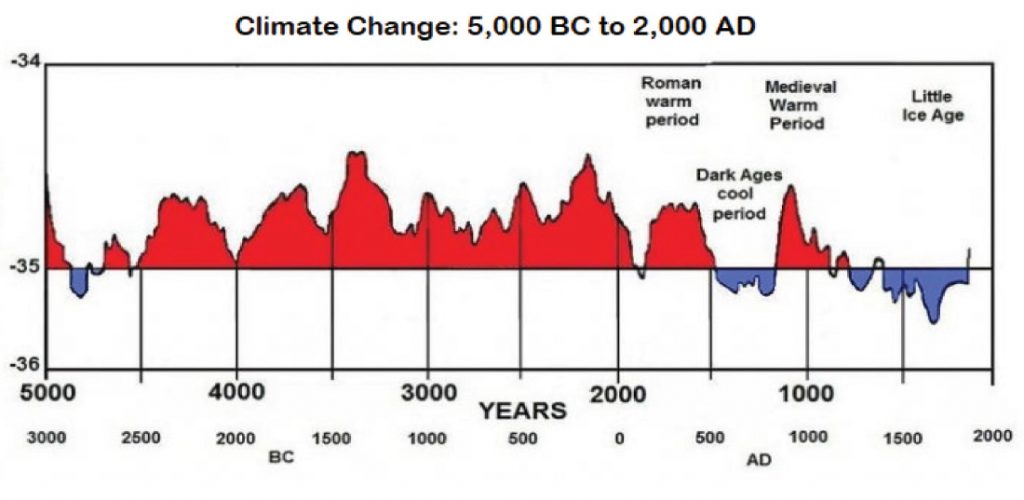The evidence is clear that over the last 150 years, the earth’s climate has become warmer. This has led environmentalists to demand governments take action to halt global warming and “save the planet.” But is climate change really a threat to the planet?


Until recently, historians conjectured that this period was called the “Dark Age” in contrast to the “Age of Enlightenment” that followed it. But recent research by Michael McCormick, professor of medieval history at Harvard University, and glaciologist Paul Mayewski, has linked the Dark Age to a massive volcanic eruption in Iceland in early 536 that spewed an enormous amount of ash across much of the globe, creating a fog that cast the world into darkness and blocked the rays of the sun from warming the earth (the opposite of today’s “greenhouse” effect). Thus, the “Dark Age” was literally dark.
We recently experienced something similar, albeit on a much smaller scale, when Mount Pinatubo erupted in the Philippines in 1991 and spewed an enormous amount of ash into the stratosphere. The result was a “volcanic winter” in which the temperature in the northern hemisphere dropped an average of 1.1 degrees while the temperature in the stratosphere rose several degrees due to the absorption of radiation by the aerosol.
So, is today’s global warming driven by industrialization a threat to the planet? Some like to imagine that prior to the industrial age and its factories spewing smoke, the world was like Thoreau’s Walden Pond: pure, pristine and in tune with nature. But the pre-industrial world was not like that. Except for the privileged noble few, it was a terrible, filthy place by modern standards. City streets were full of sewage and animal dung, starvation and disease were common, childbirth was a life-threatening experience for mothers and their infants, and work was long and tedious with meager reward. Industrialization is the reason the earth can support many more people than ever before at a standard of living earlier ages could only imagine.
Rather than trying to unite the governments of the world to change the climate and save the planet, perhaps we should be encouraging people to adapt to the earth’s changing climate, whatever its cause. Human beings have been very successful on planet earth, partly because of our ability to adapt to climate change. While other creatures must evolve to adapt, human beings use their creative brains to adapt to changes. We adapt every day to colder temperatures at night and warmer temperatures during the day as the earth spins on its axis; we adapt every year to the changing seasons as the earth rotates around the sun; and over the centuries we have migrated and changed our ways of doing things as the climate has changed due to volcanic activity and other forces of nature.
Is there any reason to believe that today’s climate is the ideal climate for human existence? Is there any reason to believe the governments of the world, which are most known for waging war and have rarely succeeded at ameliorating human suffering, will somehow work together to stabilize our climate? Is there any reason to believe that the collective effort of governments can overcome the powerful forces of nature that have driven most of our climate change throughout history?
Climate change is not a hoax: the glaciers are melting, the oceans are rising, and weather patterns are changing. But rather than running around like Chicken Little calling on governments to change this, we should rely on market forces to unleash human ingenuity and creativity to adapt to these changes.















Comments are closed.